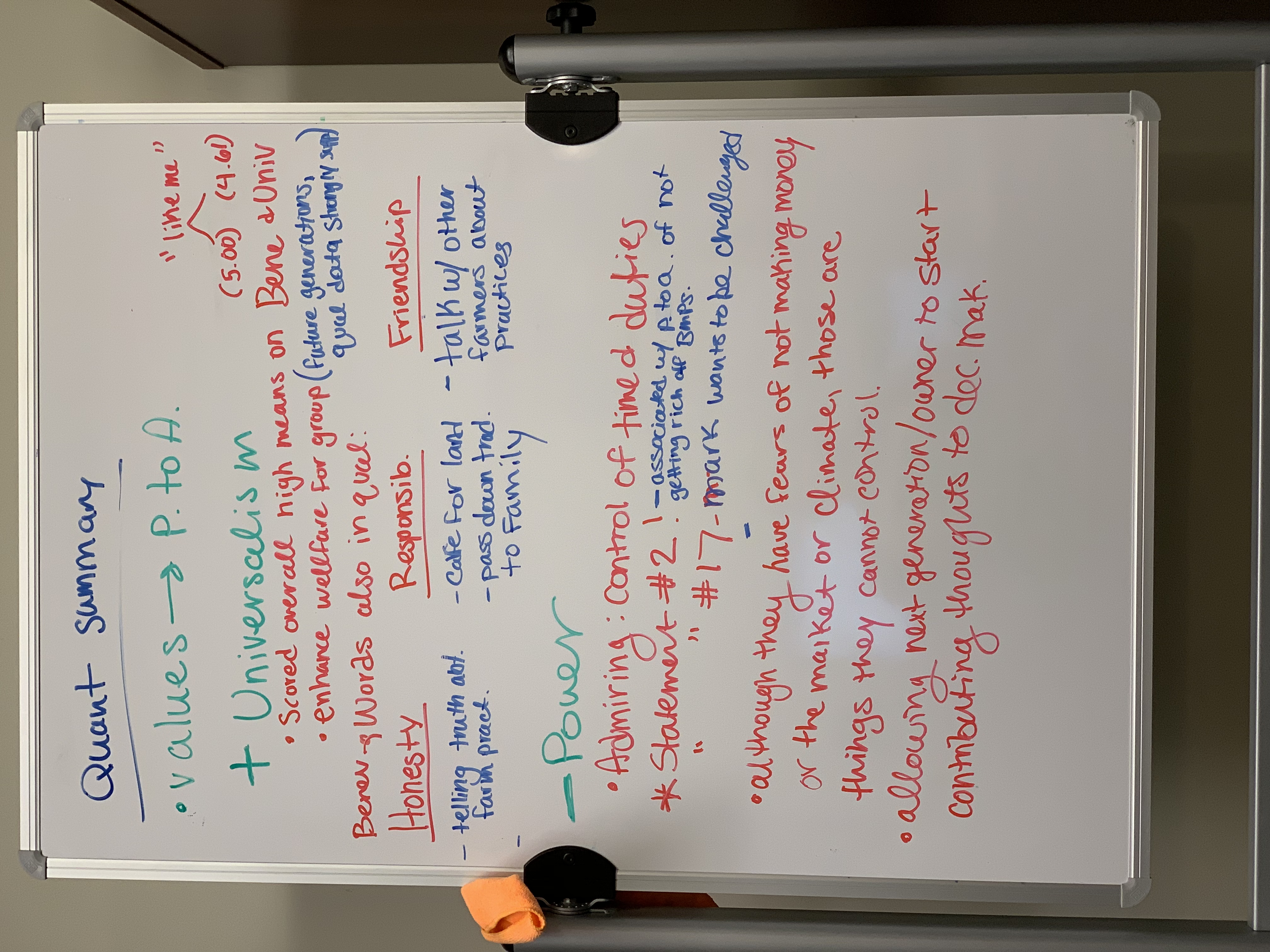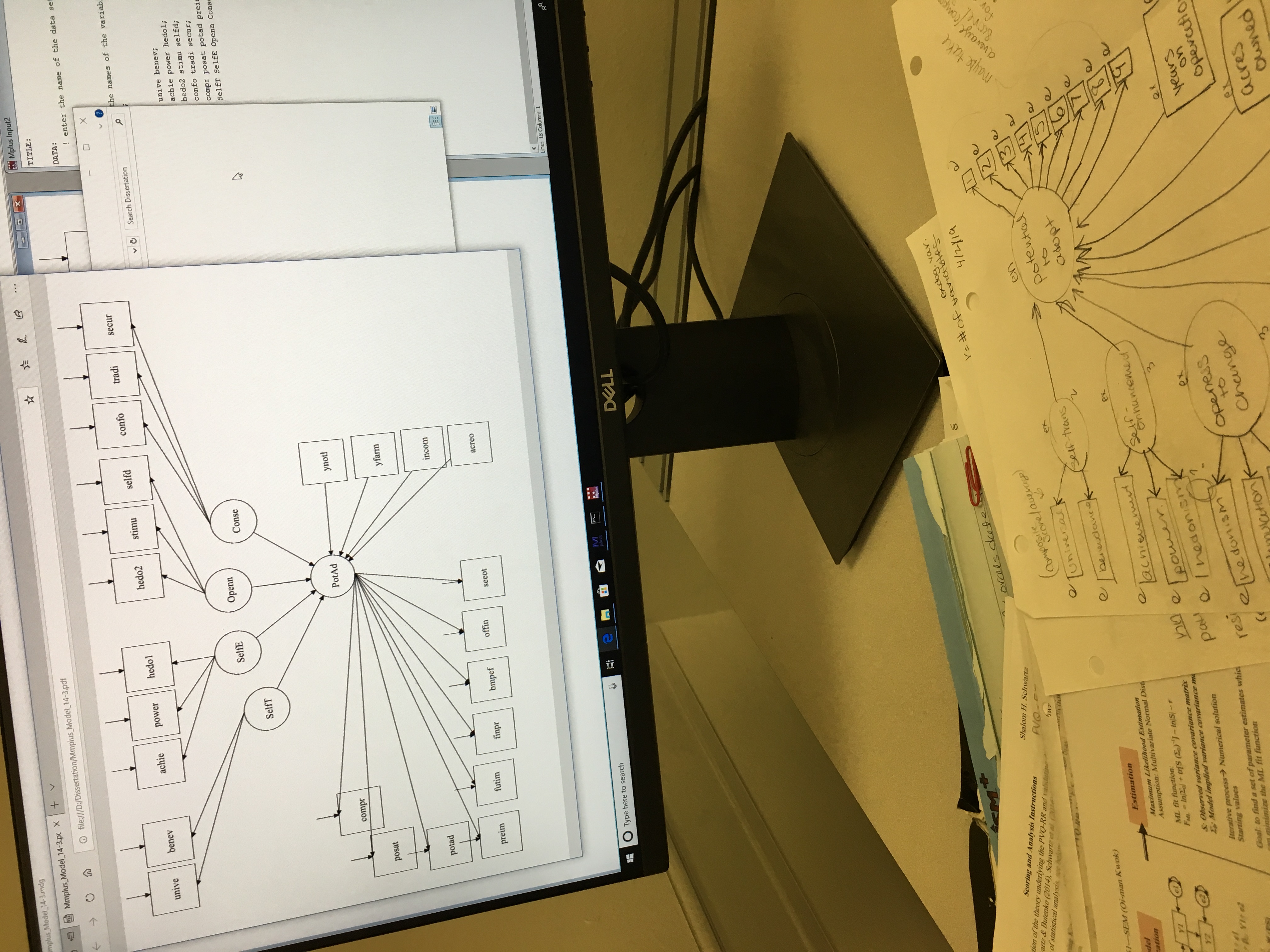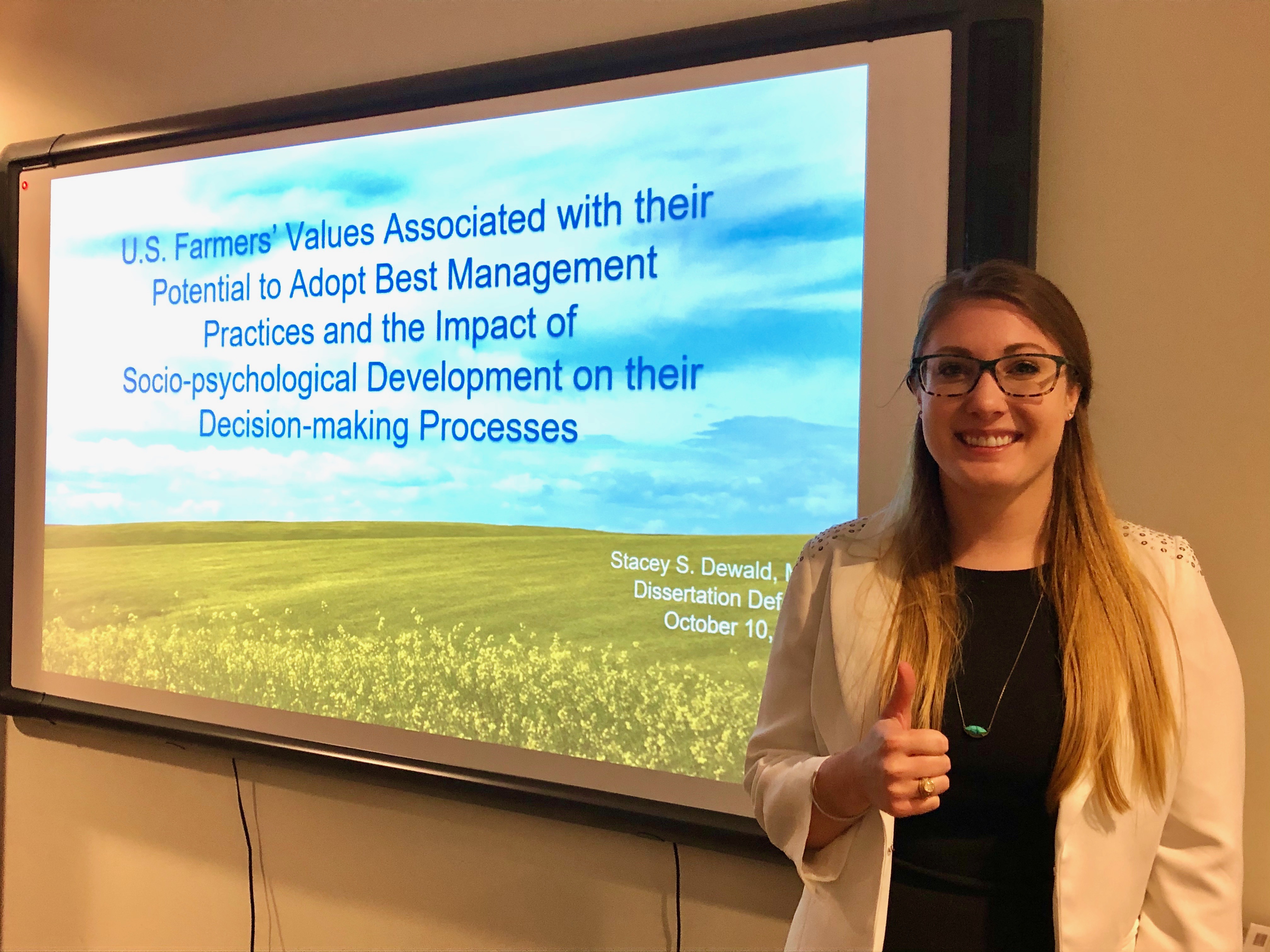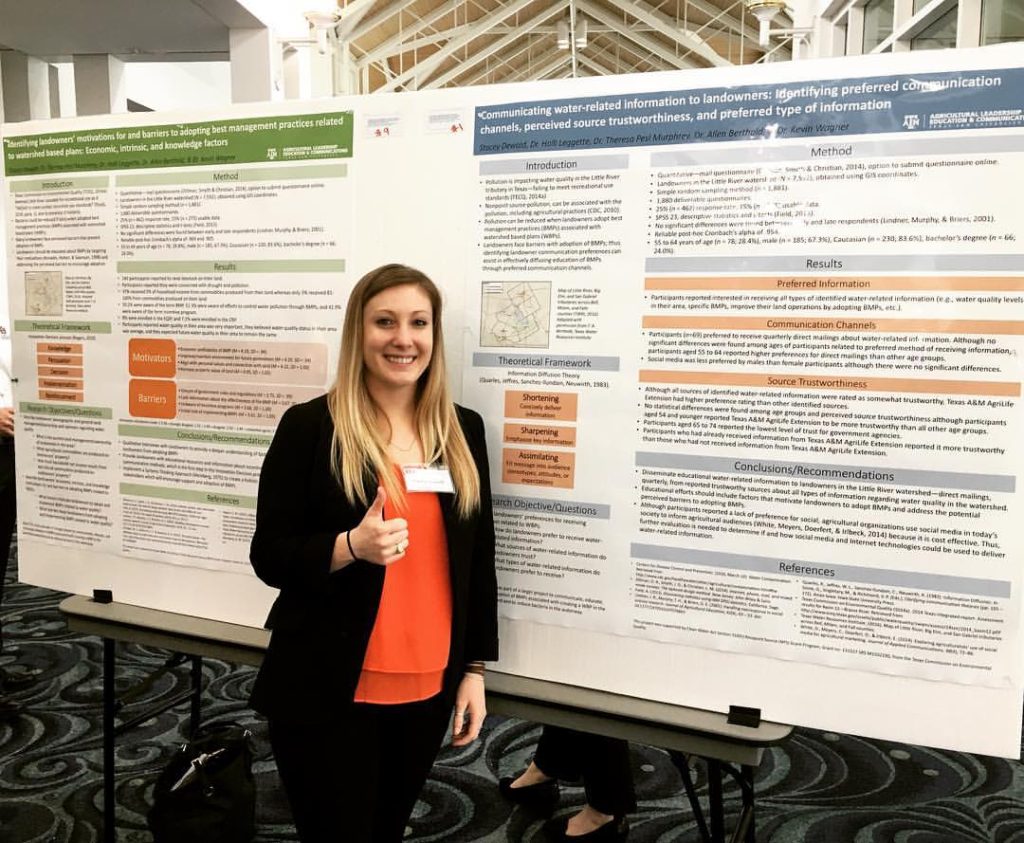I enjoy exploring and learning about new topics. Through my training in social science research, I can adequately gather data, analyze, and interpret the world around me. Most importantly, I am able to communicate my findings with those around me.
Data Collection

My passion for understanding the unknown and solving issues drives my motivation to conduct social science research. I enjoy exploring the relationships between humans and natural resources, and how to strengthen those relationships through education and outreach. I have knowledge and application experience in both quantitative and qualitative research methods, including, survey and evaluation design, interviews, focus groups, and photovoice.
I understand that each goal of a research project is answered by a specific method of data collection and analysis procedures. I have experience in the following data collection methods: mail survey design and implementation; web-based survey design and implementation via email, website, social media; in-person survey design and implementation via convenience sampling (classroom, conference, intercept data collection methods); interviews; focus groups; and observations.
I have also gathered data from existing sources to further support my research as well as analyze to explore new avenues. Such sources include, U.S. Department of Agriculture’s National Agricultural Statistics Service and the Economic Research Service.
Data Analysis

I have experience managing data in multiple database software. I am organized and detailed when it comes to collecting data. I can analyze quantitative data using univariate, bivariate, multivariate approaches, using Excel, Stata, and SPSS.
When analyzing qualitative data, I have experience using multiple analysis methods including, a grounded theory approach using a constant comparative approach. I also have analyzed data using “the paper method” as well as limited experience using NVivo.
Writing and Reporting

Extending and sharing data to various audiences is an important, if not the most important, part of the research process.
I acknowledge that different audiences require different methods of communicating messages. I have experience reading data outputs to write technical reports for academic and business audiences. I have written a research thesis, dissertation, journal manuscripts, and presented posters and presentations at multiple academic conferences.
I have also extended scientific information to the broader public through websites, social media, popular press articles, and infographics. Because every method of dissemination is dependent on the audience and the stakeholders, I do my best to put myself in their shoes while reading and interpreting the information presented. Check out some examples below.
Research Dissemination

2021 Joint Annual Meetings and Conference of the Association for the Study of Food and Society (ASFS) and the Agriculture, Food, and Human Values Society (AFHVS) [Virtual conference] – How does your upbringing influence how you make decisions? Exploring the impact of socio-psychological development on farmers’ decision-making processes
2021 Borderlands Research Institute [print] – 2021 Conservation Biology Research Report
2020 Borderlands Research Institute [print] – 2020 Game Bird Research Report
2020 Borderlands Research Institute [print] – Respect Big Bend Stakeholder Engagement Progress Report 2019
2019 Agriculture Food and Human Values Society Conference [presentation] – Values and characteristics associated with the adoption of farm management practices
2018 Western Region American Association for Agricultural Educators Conference [poster] – Stop collaborate and listen: Using Geographic Information Systems in Agricultural Education
2017 Southern Region American Association for Agricultural Educators Conference [poster] – Identifying landowners’ motivations for and barriers to adopting best management practices related to watershed-based plans: Economic, intrinsic, and knowledge factors
Selected Publications
Dewald, S. S., Murphrey, T. P., Leggette, H. R., Berthold, A. T., & Wagner, K. (2019). Landowner adoption of water quality best management practices: Motivations and barriers. Journal of Extension, 57(5). [5RIB4]. Retrieved from https://joe.org/joe/2019october/rb4.php
Dewald, S., Leggette, H. R., Murphrey, R. P., Berthold, A. T., & Wagner, K. (2018). Communicating to landowners in the Texas Little River watershed: A descriptive analysis of their communication preferences for receiving water-related information. Journal of Agricultural Education, 59(2), 343-369. doi: 10.5032/jae.2018.02343
